This fall, Iraq’s Kurds have suffered their worst setbacks in their quest for independence in a quarter-century. Their leader Masoud Barzani has quit his posts in disgrace and blamed the United States for failing to help the Kurdish people. It’s unfortunately an all too familiar pattern. Barzani’s life story is the best witness to the pattern.
Barzani first visited the White House on July 31, 1992. I was the director for Gulf and South Asian Affairs in the National Security Council so the visit was my responsibility. The liberation of Kuwait was just over a year and a half old and President George H. W. Bush was being criticized for leaving Saddam Hussein in power in Baghdad. Bush’s arguments that the coalition had no mandate for marching to Baghdad, ousting the government, and that occupying Iraq would become an endless quagmire for Americans failed to staunch the criticism.
Barzani was one of six Iraqi opposition leaders invited to the White House. He was the most credible but by far the hardest to convince to come, and he remained skeptical throughout the visit about American intentions. He sat in the Roosevelt room like a man cornered, who knew that the siren call of the Americans could not be resisted but would ultimately be a disastrous delusion.
It is not hard to understand his reluctance and caution. His father Mustafa Barzani had led the Kurdish rebellion against Baghdad in the early 1970s that was supported clandestinely by the Shah of Iran and the CIA as well as the Israeli secret intelligence service, the Mossad. Against great odds, the Kurds drove the Iraqi army out of much of Kurdistan.
In 1975, the shah signed a border treaty with Hussein and abandoned the Kurds to disaster. The United States did nothing to help the Kurds except to offer the elder Barzani safe exile. The Kurds paid a horrific price for trusting their allies. Mustafa spent the rest of his days in exile in northern Virginia. Henry Kissinger famously said, “fuck the Kurds if they can’t take a joke” and “covert action should not be confused with missionary work.”
In the 1980s, the Kurds joined with the Iranian revolutionary regime in fighting the Iran-Iraq war. When it ended, Hussein was even more ruthless and brutal than in 1974. Again Washington did nothing. Thousands of Kurds were killed and tens of thousands were forced into harsh encampments where they were under Hussein’s cruelty. The Reagan administration had aligned with Hussein against Iran and did nothing to help the Kurds.
In 1991, President Bush had watched Hussein again crush a Kurdish rebellion just as Kuwait was freed. Hundreds of thousands of Kurds were fleeing into Turkey, our NATO ally. Reluctantly, the White House this time intervened with a no-fly zone in northern Iraq. Operation Provide Comfort effectively created a Kurdish enclave along the Turkish border, which the Kurds then expanded it to create a de facto mini-state.
When Masoud Barzani arrived at the White House, he came bearing the legacy of this pattern of American betrayal. Bush’s national security adviser, General Brent Scowcroft, was the host and he too was well aware of this past. He was as unenthusiastic and uncomfortable about the meeting as Barzani. Scowcroft stressed repeatedly American support for Iraq’s territorial integrity, code words for opposition to Kurdish independence.
The mantra of territorial integrity reflects the harsh geopolitical map of the Middle East. All of Iraq’s neighbors oppose Kurdish independence because they have their own Kurdish populations. The Arab world more broadly opposes independence, which would set a precedent for other minority groups. Successive American administrations stuck to the same talking points, both Democrats and Republicans. The Kurds, with very little enthusiasm, have mouthed their own tepid support for Iraqi territorial integrity.
A year after Scowcroft’s meeting in April 1993, Vice President Al Gore hosted the same group in his formal office in the Old Executive Office Building. Again Masoud was the most reluctant participant. He frowned throughout the photo op. His skepticism was clear. In the pictures he is grim-faced.
In 1994, I and several other American officials visited the Provide Comfort-protected Kurdish region. It was under constant threat from Hussein, but President Clinton wanted to show his sympathy for the opposition on the ground. Masoud was a generous host but still skeptical of America. We flew in and out in two helicopters provided by Operation Provide Comfort. Two weeks later, the same two helicopters were shot down by American jet fighters in a ghastly case of friendly fire and mistaken identity.
Masoud was capable of his own deception. In August 1996, he colluded with Hussein to let the Iraqi army enter Erbil to massacre Iraqi oppositionists to gain strength against his lifelong Kurdish rival Jalal Talabani. Dozens of Hussein opponents were brutally killed. Provide Comfort watched and did nothing to stop the slaughter.
The Clinton administration spent the next year trying to negotiate a reconciliation between the two Kurdish rivals. Talabani had been the other Kurd at Scowcroft’s July 1992 White House session. He was so eager to get his foot in the American door that he forgot his wallet that morning and showed up at the gate with no identification papers. I had to promise the Secret Service that this Iraqi with no passport or even a credit card was not an assassination threat.
Masoud now is apparently ending his political career although retirement has never really been an option for Middle East politicians. After carrying out a referendum to endorse Kurdish independence against the advice of nearly everyone, he has seen the Baghdad regime recapture the crucial city of Kirkuk and the oil fields essential to Kurdish self-sufficiency. His leadership has set back Kurdish hopes just when they seemed on the cusp of victory. He is widely discredited although his base remains violently faithful.
Iran engineered the whirlwind against Barzani. The White House was slow to react and outmaneuvered by Tehran. The first test of Trump’s new tough Iran strategy is a blowout for the Ayatollahs and the Iranian Revolutionary Guards. The most pro-American segment of the Iraqi population was kneecapped.
Once again Barzani blames Washington for not standing by the Kurds. American-made and -provided weapons were used by Iranian-backed Iraqis to crush Kurdish forces. He has a good case. The Kurds have been a central ally in the fight against ISIS, just as they fought Hussein in 2003 and al-Qaida in the years after. But Americans have been consistent for decades. Masoud was right.
The Brookings Institution is committed to quality, independence, and impact.
We are supported by a diverse array of funders. In line with our values and policies, each Brookings publication represents the sole views of its author(s).



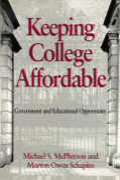
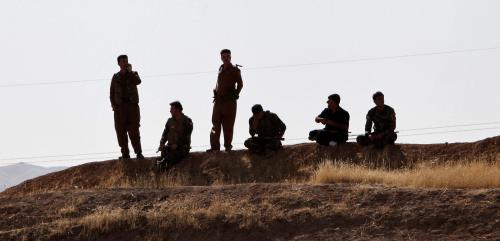
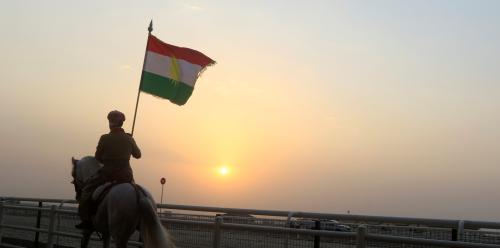
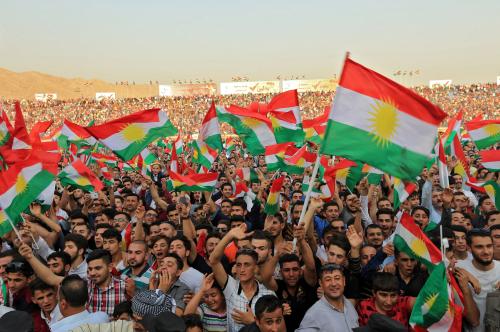

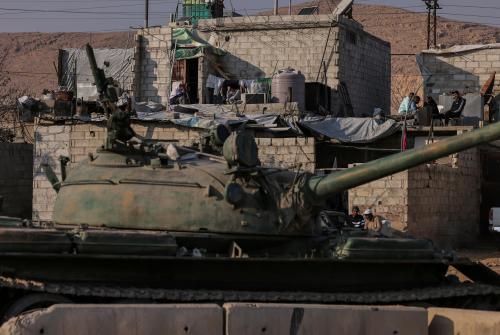
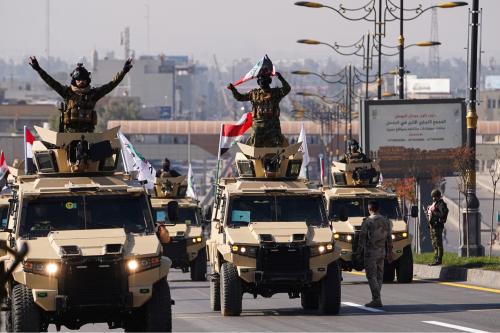
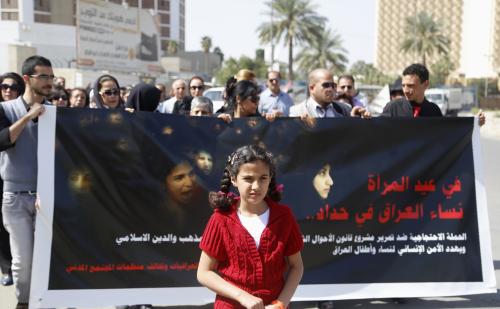
Commentary
Masoud Barzani and the roots of Kurdish distrust of the United States
November 2, 2017